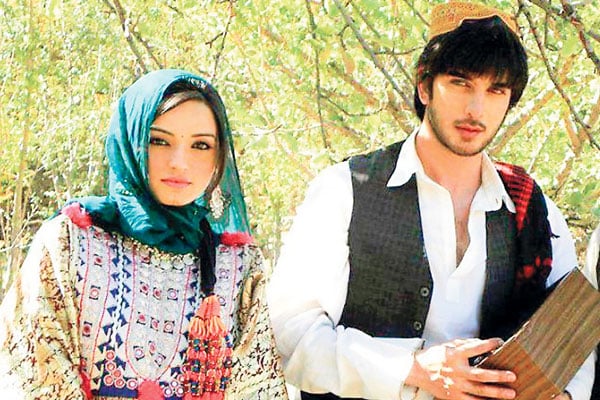If given a chance, Pakistan’s film industry has a lot of potential to produce good movies. All that is needed is support from the viewers and the government. One such good movie is Abdullah: The Final Witness.
instepreview
Based on a real-life incident, Abdullah:
The Final Witness is the kind of story our film industry needs.
Karachi: If given a chance, Pakistan’s film industry has a lot of potential to produce good movies. All that is needed is support from the viewers and the government. One such good movie is Abdullah: The Final Witness.
Abdullah: The Final Witness is not a typical mainstream film where there is fast paced action, glamourous actors, well-choreographed dances and loud thumping music. It is a simple movie depicting real life emotions faced by ordinary people.
Based on a real incident that occurred in 2011 when five people, including 3 women, were gunned down at Balochistan’s Kharotabad check post on suspicion of terrorism, this movie reveals a menace that Pakistan is facing: terrorism.

The story has been written and directed by Hashim Nadeem who has tried to capture the reality of this gruesome incident in a 90 minute long feature film. The plot revolves around Abdullah, a truck driver, whose life turns on its head after giving five ill-fated strangers a lift in his truck.
Abdullah’s character is brought to life by veteran actor Hameed Sheikh who superbly turns him into a real person with his brilliant acting. Balochistan may have arid patches geographically but it has no dearth of good actors as Sheikh is originally from Quetta and has many great roles to his credit, most recent being in the film Moor.
The story begins with the police reinvestigating the case due to immense pressure from Russia as four of the victims were Russian. Sajid Hasan plays an SSP who wants to find out the truth by interrogating Abdullah. While Hasan is a superb actor with at least more than two decades of acting experience, he has not been used to his full potential in the film. The role of the SSP lacks meat and when put in front of Sheikh, it seems a little washed out. The veteran should have been given more dialogues and the interrogation scenes with Sheikh should have been a little longer and more detailed. Seeing two talented actors together in their full glory would have produced some powerful scenes and added more depth to the story.
Moving along, Abdullah’s character is supported by the character of his assistant, played by Habeeb Panezai who is another good Baloch actor. Although the role is a short one, it is pivotal since it renders Abdullah’s character complete.
In one short scene, we understand their relationship when the assistant asks to drive the truck but is scolded by his ustad (Sheikh.) This shows that the truck driver has immense pressure on him while driving on the dangerous roads across the rocky mountainous terrain of Balochistan, making sure everyone and everything gets across safely.
At times the storyline becomes extremely weak. One major chunk that didn’t add anything to the story and seemed like a drag was the love story of Abdullah’s son, played by Imran Abbas, and his lover, played by Sadia Khan.
There was no need for this story to be given so much time and both Abbas and Khan failed to bring life to their characters. Their emotionless acting left a lot to desire, leaving the viewers wishing they had a remote in their hands to fast forward to Abdullah.
According to the director, this angle in the story was only introduced to make the film more commercially viable but unfortunately, it failed to impress the crowd, who spent this time of the film laughing and talking loudly. And we couldn’t blame them.
If the film needed a love angle, it could have been focused on the victims killed at the check post, which was only touched at the end with a series of short scenes showing a young couple in love planning for the future.
Another aspect of the film which proved to be unsuccessful was the soundtrack. It would have been better to include Balochistan’s local songs in local languages.
The cinematography has exceeded expectations as some shots are really good and crisp. But the film has incorporated too many close-ups in which the camera is too close to the character, almost filling in the screen with no place to breath, not even leaving head space.
However, Abdullah’s prison scenes are extremely well lit and accurately depict the emotions he is feeling.
Also Khan’s axe wielding angry brother seems to be extra baggage and half-heartedly written. When you expect him to burst with anger at catching his sister meeting her lover, his reaction is not as explosive as one would imagine.
All in all, Abdullah is a good attempt at highlighting an incident that needs to be talked about. It is stories like these that need to see the light of day.